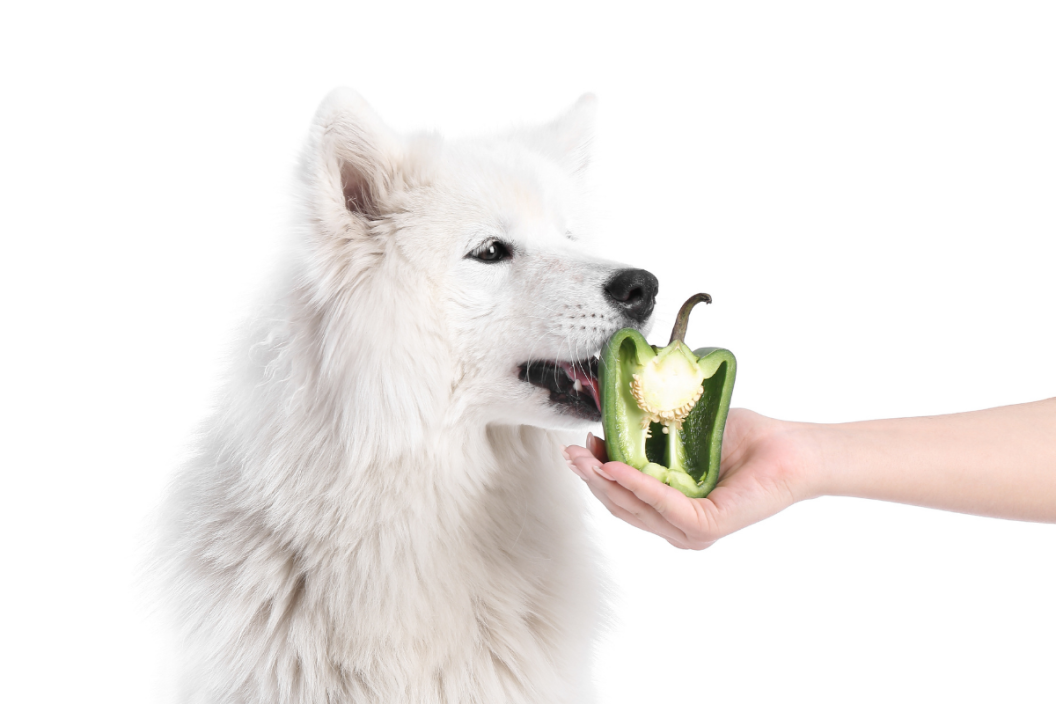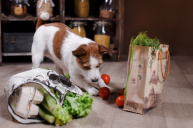What does a nosy pepper do? Get jalapeño business!
Can dogs eat bell peppers? Dog owners may be asking if it's safe or healthy if their dog eats a pepper, especially if it's a spicy pepper. While dogs should not eat hot peppers, sweet peppers such as bell peppers are completely healthy and do not cause any health problems or stomach illnesses. If fed in the proper quantities, bell peppers are beneficial to dogs. If your dog doesn't like bell peppers, there are plenty of other good veggie choices.
What Are The Health Benefits of Bell Peppers?
https://www.instagram.com/p/CPDcZzuHNsf/
Any color bell pepper contains essential vitamins and nutrients that are good for dogs' wellbeing, but red bell peppers are the most nutritious. Vegetables in moderation are beneficial to your dog, mainly if she is prone to obesity or constipation. Peppers are high in vitamins A, E, B6, and lutein, as well as vitamin C and beta-carotene, which are antioxidants essential for a dog's immune system. Since processed dog food is expected to contain all of the vitamins and minerals your dog needs to survive, you should only feed bell peppers as a treat.
What Are The Health Risks?
https://www.instagram.com/p/CKcdmEFAqoU/
Never season or salt peppers, and never feed them to your dog if they have been combined with onions or garlic, as these ingredients are poisonous to dogs. It is also important to remember that spicy types, such as jalapenos or chili peppers, should never be given to your dog. Since the skin of bell pepper can be tough and challenging to chew, you can steam or puree it to make it easier for your dog to eat and digest. Always consult your doctor before adding something new to your dog's diet. If you use bell peppers as treats, each portion should be no more significant than a slice, as treats should not account for more than 10% of your dog's daily food consumption, as this may contribute to obesity.
Always consult your doctor before adding something new, especially human food, to your dog's diet. If you use bell peppers as treats, make each portion smaller than a slice, as treats should not account for more than 10% of your dog's daily food consumption, as this can contribute to digestive system discomfort and obesity.
How To Safely Feed Your Dog Peppers
https://www.instagram.com/p/CBeRTcxhGDh/
Large dogs should consume no more than one-half pepper at a time, and small dogs should eat no more than one-quarter pepper at a time. To avoid indigestion and upset stomach, remove the seeds and stems. It would be best if you fed your dog pureed or cooked peppers to make them more digestible and to help your dog's body absorb enough nutrients from the vegetables you're feeding them. The outer skin of raw bell peppers may also irritate your dog's stomach.
The easiest ways to prepare bell peppers for your dog are to steam them or cook them in a pan with little to no fat. Before you begin, remove the cores and seeds. Never feed cooked peppers to your pooch if they have been prepared with onions or garlic, as these two vegetables are toxic to dogs. Even if you isolate them after frying, the other vegetables' substances are still mixed in with the peppers and can hurt your dog.
What foods do your furry friends enjoy? Share with us on the Wide Open Pets Facebook page!




